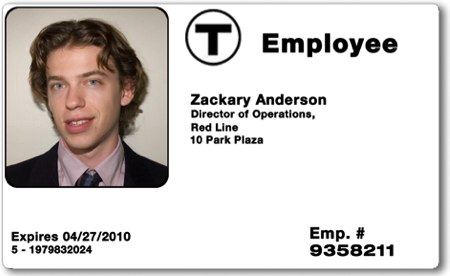
The Massachusetts Bay Transit Authority (MBTA) has dropped its federal case against three MIT researchers, “the subway hackers”. This happened in October and now the EFF brings news that the students will be working with the MBTA to improve their system. The overall goal is to raise security while keeping expenses minimal.
This whole mess started in August when a gag order was issued against the students’ presentation at Defcon. It’s a shame no one ever saw it because it covers a lot of interesting ground. A PDF of the banned slides is still online. They performed several attacks against both the subway’s fare system and physical security. Our favorites by far were using GNU Radio to sniff the RFID card’s transaction and bruteforcing Mifare Classic with an FPGA.














